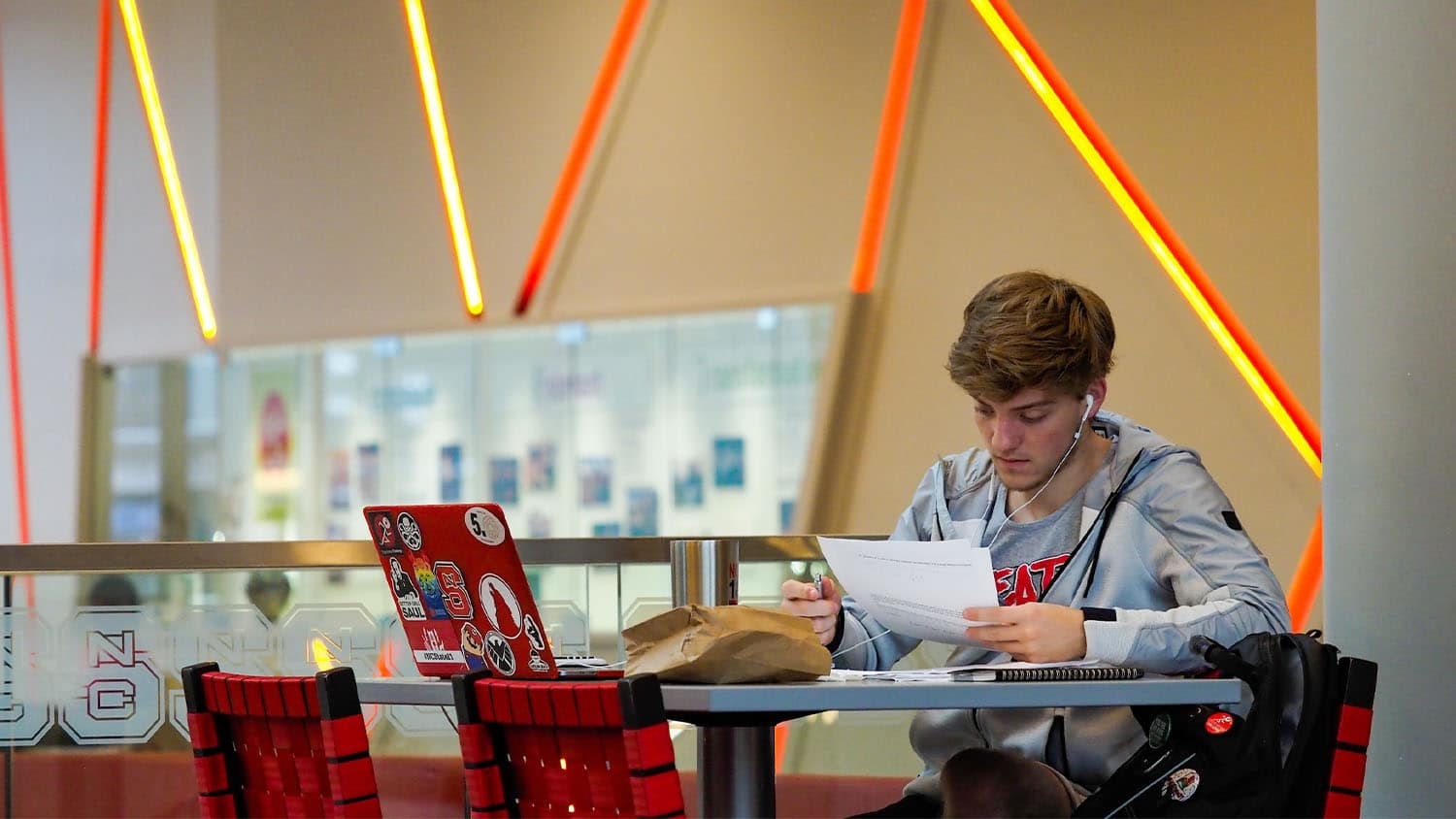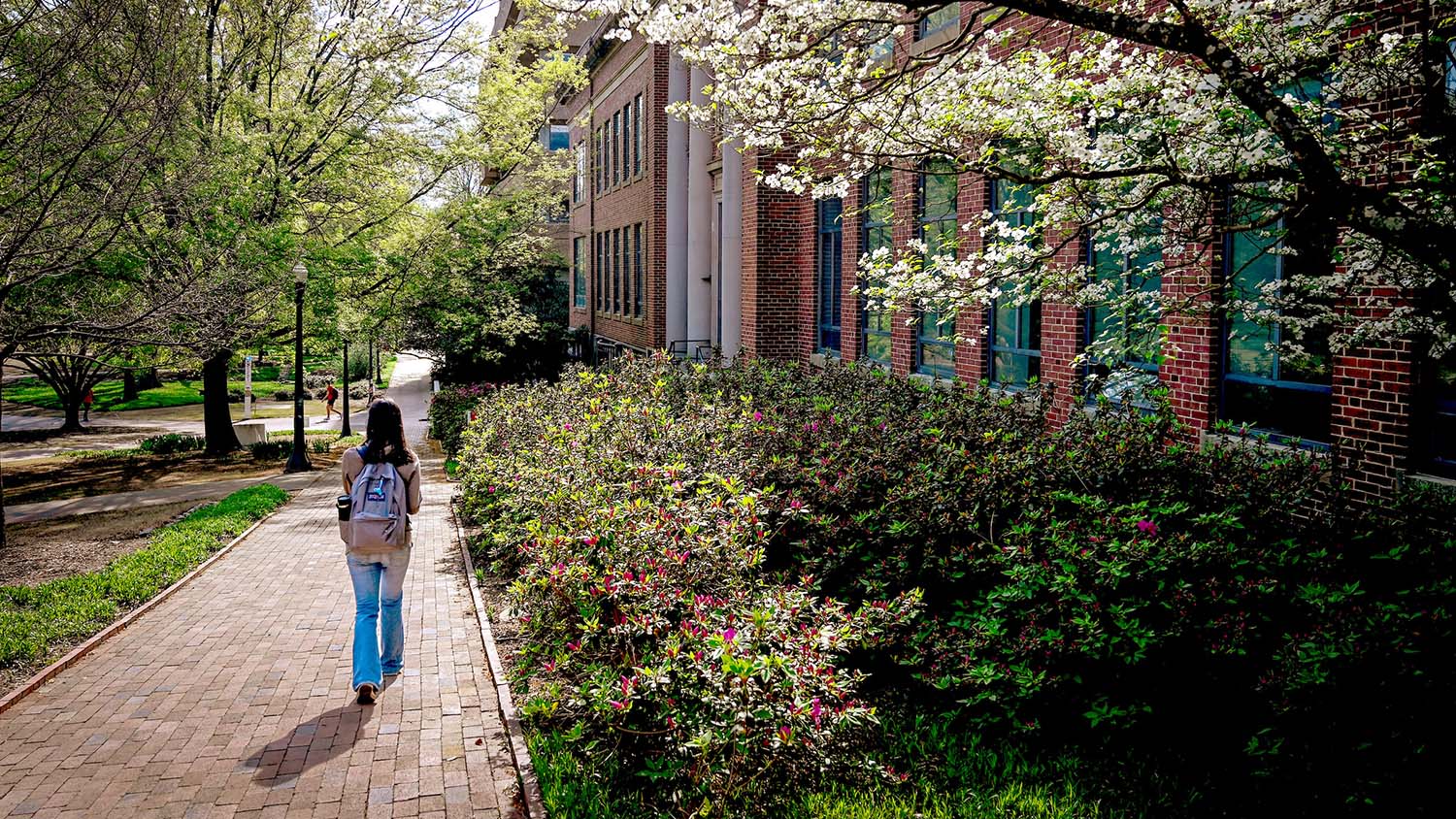Finding King’s Speech: English Professor’s Research Uncovers Historic Recording

For years, Rocky Mount citizens have told tales about hearing the first rendition of Martin Luther King Jr.’s “I have a dream” speech.
Before 1,800 people in a crammed high school gym, King talked about his “dream” and uttered other familiar passages in the fall of 1962. It was nine months before the March on Washington.
More than 50 years later, an NC State English professor’s research is bringing that same speech back to life. After discovering and restoring a recording of King’s Rocky Mount speech, Dr. Jason Miller, associate head of the university’s Department of English, is airing the address for public consumption.
Miller, who unveiled the recording Aug. 11 at the James B. Hunt Jr. Library, started looking for the tape a couple years ago while studying the similarities between King’s speeches and the poetry of Langston Hughes.
His research, which led to the book “Origins of the Dream: Hughes’s Poetry and King’s Rhetoric,” took him to libraries across the nation. However, his most significant find came not too far away in Rocky Mount, where King delivered the speech on Nov. 27, 1962, at Booker T. Washington High School.
Miller was privy to the speech and also knew about a historical marker in town that denoted the address. But during his research, he also learned about a transcript.
He thought, “If there’s a transcript, there has to be audio somewhere,” he said.
So he went out searching and eventually ended up at the Braswell Memorial Library in Rocky Mount. There, he came across an old box that contained a 1.5mm reel-to-reel tape. Inside the box, someone had written in pencil, “Dr. Martin Luther King speech – Please do not erase.”
No one knew the contents of the reel, Miller said, and staff at the library didn’t even know where the box came from.
“I said, ‘Let me be the steward and advocate of this tape because everyone needs to know about this,” Miller said.

The tape itself was in fairly good condition. When he played it, Miller knew he’d found what he was looking for: the complete 55-minute speech that Miller says captures King at the height of his oratorical prowess.
In order to preserve the reel, he wanted to get it restored.
Miller sought out George Blood, one of the world’s leading audio archivists, and drove the tape to his archive room in Philadelphia. Blood restored it as closely as possible to its original condition.
“There are no edits, there are no dubs, there are no missing words in this speech,” Miller said. “You can hear the audience’s reactions, you can hear Dr. King rap on the podium, you can hear exactly how he enunciated his words, and more importantly, you can hear what I consider to be the most unique speech of his career.”
While the recording is similar to King’s 1963 address in Washington, it is unique in itself. This fall, the audio and a full transcript will be available at a website Miller plans to publish. He’s created 89 annotations for the speech that will be accessible through hyperlinks on the site.
“At NC State University, we pride ourselves in making our scholarship accessible and available, so that’s why this project finds its home here,” Miller said.
King-Hughes connection
Miller’s research into the linguistic links between King and Hughes stems back to 2008.
In his book, published earlier this year, Miller documents how King riffed on, drew from and sometimes rewrote parts of Hughes’s poems for his speeches.
Miller said the two men knew each other and occasionally exchanged letters and ideas. In January 1960, for instance, King had Hughes write a poem for a special event that featured dreams, he said.
In 1959, Miller said, King also riffed and played on Hughes’s poem “A Dream Deferred” when talking about shattered dreams during a speech. Even earlier than that, in 1956, King ended a different address by rewriting Hughes’s poem, “I Dream a World.”
“The subject matter of Dr. King’s speech was the idea of integration and transformation, so he was transforming Hughes’s words and linking them with many other ideas,” Miller said.
Miller is co-producing a documentary about the King-Hughes connection, “Origin of the Dream,” along with Cash Michaels, editor of The Carolinian newspaper, and filmmaker Rebecca Cerese. For more information, go to www.originofthedream.com.
Listening again
While it’s unclear how King came to speak in Rocky Mount in 1962, a local pastor had invited him to town as early as February 1958, according to Miller’s research.
Herbert Tillman remembers going to see King speak. A 1963 graduate of Booker T. Washington High, Tillman listened to portions of King’s speech again during the Aug. 11 unveiling at the Hunt Library.
For Tillman, the recording brought back a lot of memories.
“When we first heard of him coming, everybody was so glad and so happy because we couldn’t imagine such a great man coming to Rocky Mount to bring us a word of encouragement,” Tillman said. “We were still going through quite a bit of racial trauma.”
Miller’s research shows that King had just finished a failed campaign in Georgia that took up most of his time during 1962. Just days before his Rocky Mount address, he spoke in Sasser, Ga., to commemorate the burning of two black churches at the center of a voting rights movement.
Voting rights factored into King’s Rocky Mount speech and was one of several political issues that surfaced during the address.
Helen Gay of Rocky Mount worked as a caterer for a dinner organized for King and others before the speech. She’s 95 now, but her memories of King’s visit, and his speech, are clear.
“Dr. King was a really nice, ordinary person,” Gay said after listening to the recording of the speech she heard him give, and remembering the dreams he inspired. “He was just like you and me.”
By Nash Dunn


